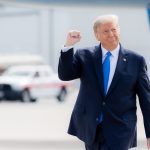In the ever-changing landscape of international relations, tensions between Israel and Hezbollah have reached new heights, as Israel has launched fresh strikes in Southern Lebanon. This action follows a series of brazen attacks that included the use of pagers and walkie-talkies, reminding the world that when push comes to shove, Israel is not a nation to back down easily. The situation is a complex tapestry of military strategy interwoven with geopolitical intrigue, and it’s clear that the stakes are as high as ever.
At the heart of these new developments is the Israeli government’s resolve to reclaim stability for its citizens. The Israeli Ambassador to the United Nations has expressed determination to bring displaced Israelis back to their homes, emphasizing that enough is enough. With over a year of conflict since the initial waves of violence began on October 7, the message to Hezbollah is clear: Israel’s patience has limits, and their military capabilities are primed for action if necessary.
While diplomatic solutions are still hoped for, the ambassador has pointed out that should negotiations fail, Israel is prepared to use its might to drive Hezbollah back from the border. The ongoing military escalation introduces a complicated question about the future: how will military force shape the diplomatic landscape? With the Iranian influence heavily at play, the idea of a peaceful resolution seems to dance just out of reach, like a carrot on a string, teasingly close yet frustratingly far away.
But the path forward is not just about the physical confrontations taking place; it also intertwines with the political climate in the United States. As looming elections approach, the American government’s response to Iranian threats and the support for its ally Israel is of utmost importance. Recently, an Israeli man was arrested for an alleged Iranian plot to assassinate Prime Minister Benjamin Netanyahu, highlighting the undercurrents of espionage and international meddling at play. With Iran attempting to infiltrate both U.S. and Israeli politics, the need for solidarity against these external threats is more crucial than ever.
Turning a significant eye towards the United Nations, the organization was recently criticized for its inability to condemn Hamas’s actions following the horrific events of October 7. As global leaders prepare to descend upon New York for upcoming discussions, questions loom about the UN’s capacity to address pressing issues effectively. Israel’s framing of its presence in Gaza and the West Bank is met with skepticism on the world stage, and as the U.N. General Assembly pushes resolutions against Israel, the underlying tensions continue to bubble.
As military strategy collides with political maneuvering on all sides, one thing is clear: the conflict in the region is far from over. The drama unfolding between Israel and Hezbollah is laden with deeper implications for stability and security, not just for the Middle East but for the world. With patience wearing thin and tempers flaring, it’s likely that both the Israeli government and Hezbollah have plenty of moves left in their respective playbooks, leaving observers worldwide braced and waiting for the next chapter to unfold. And in this high-stakes game of chess, it’s abundantly evident that the pieces are constantly shifting, and the outcome remains uncertain.




